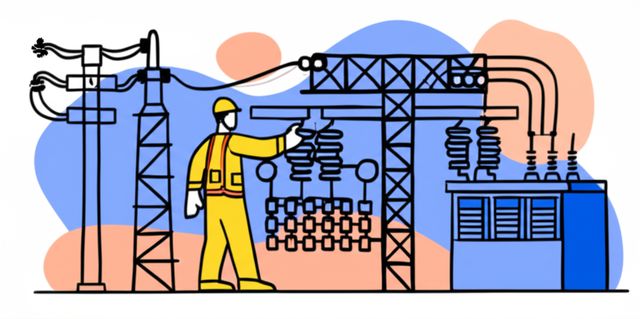
We're still writing the article for this page. Please visitthis page again soon for updates.
Find a path to becoming a Substation Engineer. Learn more at:
OpenCourser.com/career/6nkas0/substation
Reading list
We haven't picked any books for this reading list yet.
This massive handbook provides a comprehensive overview of all aspects of electric power engineering, covering generation, transmission, distribution, and utilization.
This broad overview provides electrical professionals with a comprehensive and accessible explanation of electrical power transmission systems. It offers insights into the concepts and techniques needed to analyze, design, and operate power transmission systems effectively.
Provides a comprehensive analysis and design of electrical power transmission systems, covering topics such as power flow, stability, and protection.
Provides a comprehensive overview of the electric grid, covering its history, components, operation, and challenges. It is suitable for general readers and students.
This comprehensive textbook covers the fundamental principles, design, and analysis of transmission and distribution systems. It provides a balanced treatment of theoretical and practical aspects, with a focus on real-world applications.
This essential reference for electrical engineers provides in-depth coverage of the design, operation, and maintenance of distribution systems. It includes practical guidance on topics such as substation design, protection, and renewable energy integration.
Covers the principles of electric power distribution systems, focusing on the analysis and design of distribution networks and substations. It is suitable for undergraduate students and professionals.
Examines the technology and applications of high voltage direct current (HVDC) transmission systems, providing insights into their benefits and challenges.
This practical guide provides a comprehensive treatment of electric distribution systems, covering design, construction, operation, and maintenance.
Focuses on the analysis and mitigation of harmonics in power systems, providing a comprehensive treatment of passive filter designs.
A classic textbook that provides a rigorous treatment of power transmission system analysis and optimization. It covers advanced topics such as transient stability, fault analysis, and optimal power flow.
Focuses on the protection and switching devices used in transmission and distribution systems. It provides a comprehensive overview of protective relays, circuit breakers, and other equipment used to ensure the safe and reliable operation of power systems.
This practical guide covers the principles and applications of substation automation. It provides insights into the design, installation, and maintenance of substation automation systems used in transmission and distribution networks.
This textbook provides a practical and comprehensive overview of the transmission and distribution of electrical power. It covers topics such as transmission line design, substation equipment, and power system operation.
Provides a broad overview of protection principles and devices used in electricity distribution networks, including transformer protection.
Provides a comprehensive overview of protective relays, including those used for transformer protection.
Provides a comprehensive overview of power system relaying, including transformer protection.
Provides a general overview of power system protection, including a chapter on transformer protection.
For more information about how these books relate to this course, visit:
OpenCourser.com/career/6nkas0/substation

